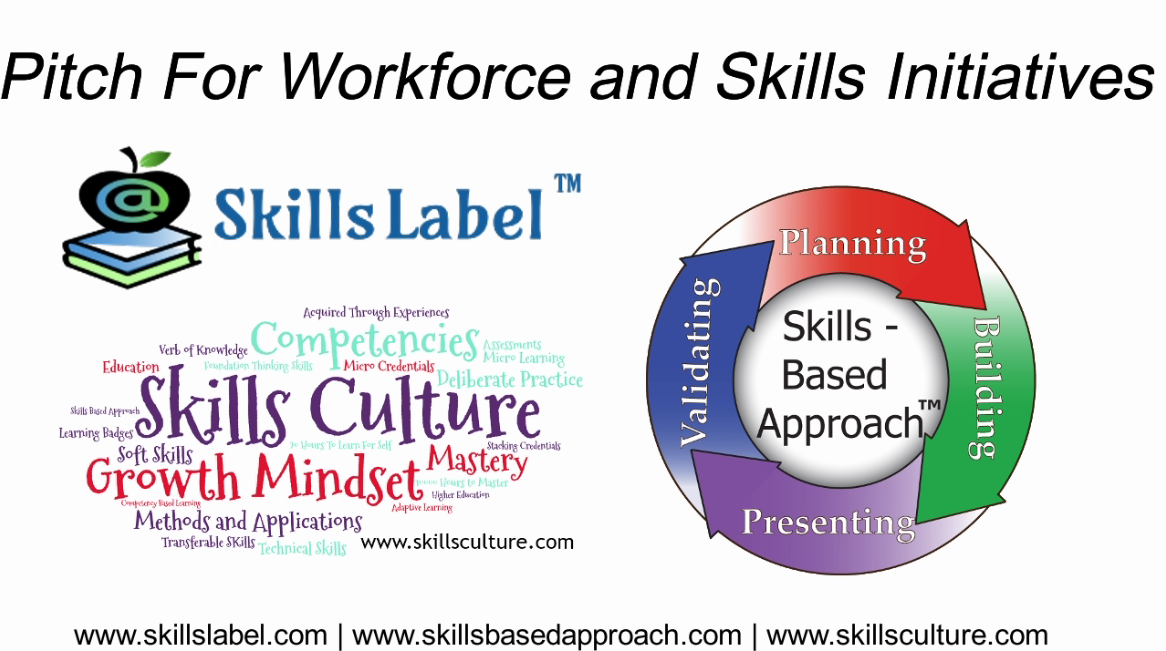Before the COVID crisis, there were already a number of proposed workforce and skills initiatives. They were meant to address two much publicized skills gaps: one for the ‘new’ blue-collar (jobs not requiring a four-year degree); and the one for technical jobs.
Through the crisis, there is increased urgency with these initiatives due to the massive loss of jobs from the crisis. Worth noting the crisis disproportionately hit ‘blue collar’ jobs, where workers cannot work remotely. Many top technical companies were hiring during the crisis.
There is also some influence from higher education, which was forced to move predominantly online and, at a minimum, commit to a future of blended leaning programs (classroom and online). I argue this is the time to move to programs based on competency-based programs (reach desired skill achievements) as opposed to the traditional time rooted programs (based on six-month semesters and credit hours).
Started to think how I would propose using my platform Skills-Based Approach (the methodology), Skills Culture (the growth mindset), and Skills Label (the system) for one of the initiatives. I would propose the following:
- Give learners, workers, and practitioners a copy of the book 'A Skills Based Approach to Developing a Career' at cost or free. The book was first published in 2013. I am in the process of editing a newer version of this well-established methodology, which should be ready for this type of release.
- Promote the adoption of the Skills Culture growth mindset to learning and personal development. The ethos is: “Every Experience is an Opportunity to Apply Skills.” Use the already established online community to share best practices in blogs, articles, and other resources.
- Get the key learning institutions (high school education, higher education, and training) mapping skills to their programs. The Skills Label system fully supports this process on a task, project, and course level and using any type of education and training standards.
- Get the key employers 'mapping skills to jobs'. The Skills Label system allows for assigning skills to jobs descriptions, both in prior experience and first year application. Provides a job board of job labels.
- Create more effective pathways. The Skills Label system allows for matching learning expectations (learning labels) with job descriptions (job labels) to establish pathways. Skill Points ® is a next generation learning measurement that is used on both labels.
Altogether, the platform combines theory with practice and application. There would be some time, cost, and research to prepare the platform for an initiative. Might take a semester for learning institutions to create labels for the tasks and projects in their courses. Employers need to get acclimated to taking an almost scientific approach to defining skills to jobs. There is a lot of research suggested in improving the Skills Points ® 2.0 algorithm; the goal is to sum the points on learning labels to match prior experience or project readiness for first year application on a job label.
But, in ten years, my team created three established resources: a book, patent, and community. All of them are fully supported with an online presence – a website, social media, and search recognition. The Skills Label system is built, went through two formal UI tests during spring semesters and years of refinement.
This is a quick video on a pitch I would give a skills initiative: https://www.youtube.com/watch?v=aYw4f37wIJo
